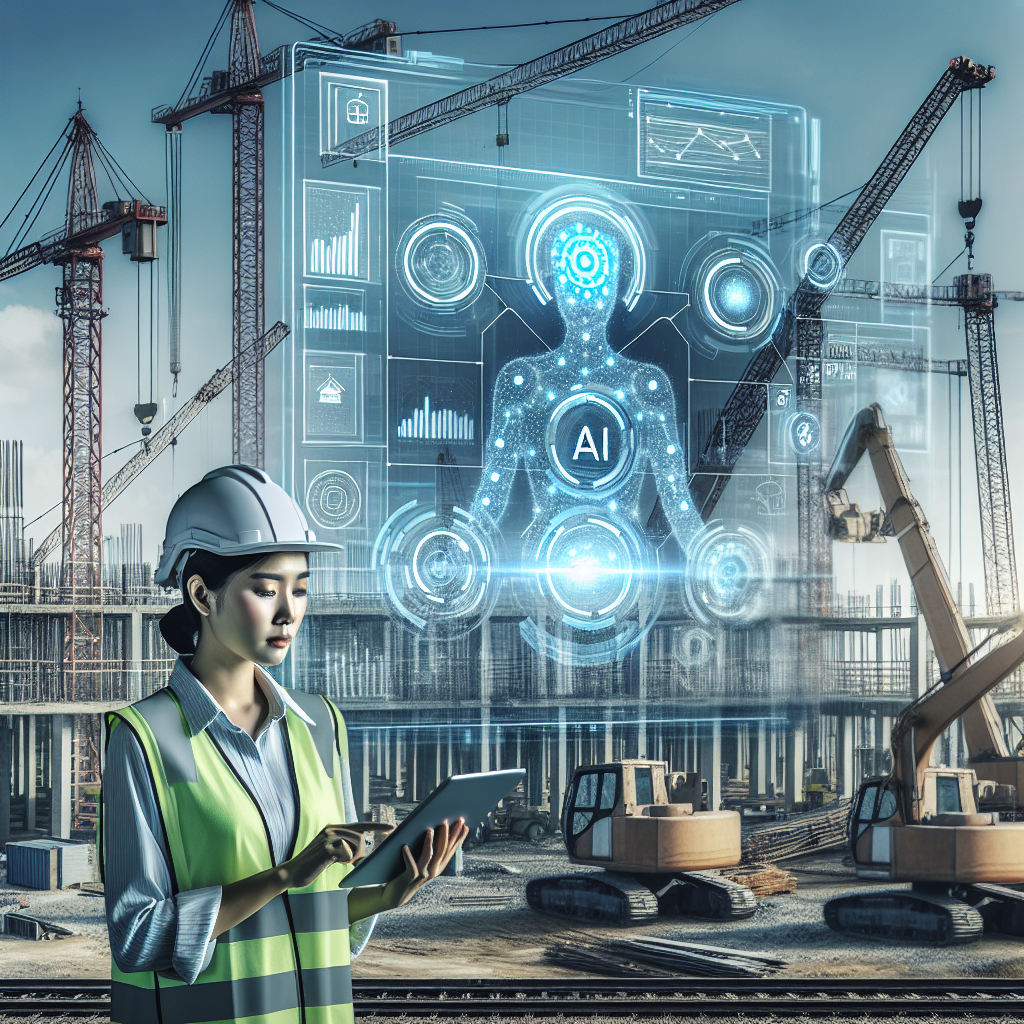AI-powered construction management is rapidly transforming the way projects are planned, executed, and monitored in the construction industry. With the help of artificial intelligence (AI), construction companies can improve efficiency, reduce costs, and minimize errors throughout the project lifecycle. From project scheduling and resource allocation to risk management and quality control, AI is revolutionizing the way construction projects are managed.
One of the key benefits of AI-powered construction management is its ability to analyze vast amounts of data in real-time. By leveraging machine learning algorithms, AI can predict potential risks and delays, optimize schedules, and identify areas for improvement. This allows construction managers to make more informed decisions and take proactive measures to ensure projects are completed on time and within budget.
AI-powered construction management also enables better resource allocation. By analyzing historical data and project requirements, AI can help construction managers allocate resources more effectively, ensuring that the right materials, equipment, and manpower are available when needed. This not only improves efficiency but also helps reduce costs by minimizing waste and overruns.
Moreover, AI can enhance risk management in construction projects. By analyzing past project data and identifying patterns, AI can help construction managers anticipate potential risks and develop mitigation strategies. This proactive approach to risk management can help prevent costly delays and disruptions, ultimately improving project outcomes.
Another area where AI-powered construction management is making a significant impact is in quality control. By analyzing data from sensors and other sources, AI can detect deviations from the project plan and alert construction managers to potential quality issues. This early detection enables construction teams to take corrective action before problems escalate, ensuring that projects meet quality standards and client expectations.
In addition to improving efficiency and cost control, AI-powered construction management is also enhancing collaboration and communication among project stakeholders. By centralizing project data and providing real-time updates, AI platforms enable construction teams to work together more effectively, share information, and make decisions collaboratively. This improved communication can help prevent misunderstandings and conflicts, leading to smoother project execution.
Overall, AI-powered construction management is revolutionizing the construction industry by helping companies improve efficiency, reduce costs, and deliver better outcomes for clients. By leveraging the power of AI, construction companies can streamline their operations, minimize risks, and ensure that projects are completed on time and within budget.
FAQs:
1. How does AI help with project scheduling in construction management?
AI uses historical data and predictive analytics to optimize project schedules, taking into account factors such as resource availability, weather conditions, and potential risks. This allows construction managers to create more realistic and efficient schedules, ultimately improving project outcomes.
2. Can AI-powered construction management help reduce costs?
Yes, AI can help construction companies reduce costs by improving resource allocation, optimizing schedules, and enhancing risk management. By minimizing waste, preventing delays, and identifying cost-saving opportunities, AI can help construction companies improve their bottom line.
3. How does AI enhance risk management in construction projects?
AI analyzes past project data to identify potential risks and develop mitigation strategies. By proactively addressing risks, construction managers can prevent costly delays and disruptions, ultimately improving project outcomes and reducing risks.
4. How can AI improve quality control in construction projects?
AI analyzes data from sensors and other sources to detect deviations from the project plan and alert construction managers to potential quality issues. This early detection enables construction teams to take corrective action before problems escalate, ensuring that projects meet quality standards and client expectations.

